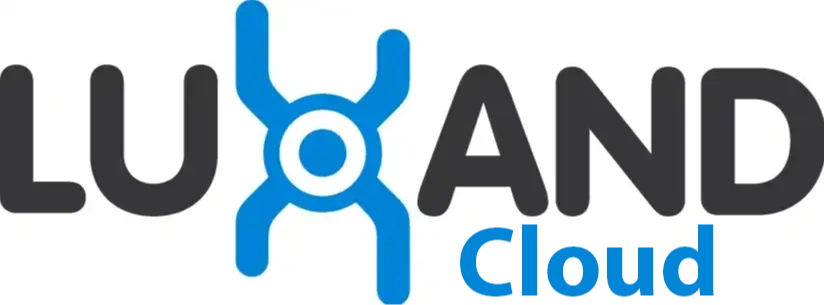
Best Facial Recognition Companies 2024
In recent years, facial recognition has evolved far beyond simple identification tasks. Businesses use it to personalize customer experiences, governments rely on it for border control and law enforcement, and event organizers leverage it to automate guest check-ins and attendance tracking. It also plays a growing role in healthcare, enabling contactless patient identification and reducing administrative bottlenecks. At the same time, financial institutions integrate facial recognition to protect against fraud, offering secure and frictionless authentication for online services.
However, the widespread adoption of facial recognition raises important considerations regarding data privacy, ethics, and regulatory compliance. As organizations explore its potential, they must strike a careful balance between the benefits of innovation and the need to safeguard personal information. For companies evaluating facial recognition solutions, understanding the available technologies and providers is crucial to selecting the right platform that aligns with their security, performance, and compliance needs.
This blog will explore the leading facial recognition companies, the features they offer, and the key factors to consider when choosing the best solution for your business. Whether your focus is on security, customer engagement, or operational efficiency, understanding the landscape of facial recognition providers will help you make an informed decision.
Criteria for Choosing the Best Facial Recognition Companies

When selecting a facial recognition company, it's essential to assess more than just the technology’s popularity or brand reputation. The right solution will depend on a combination of factors tailored to your specific needs. Below are some key criteria to help you evaluate and identify the best providers in the field.
Accuracy and Performance
Accuracy is the foundation of any reliable facial recognition system. A company’s ability to identify and verify faces correctly under different conditions—such as varying lighting, camera angles, or facial obstructions—is critical. Performance metrics like false acceptance rates (FAR) and false rejection rates (FRR) give insights into how well the system balances between security and convenience. For high-stakes applications, such as border control or banking, exceptional accuracy with minimal errors is non-negotiable.
Another aspect to consider is real-time processing. If the technology will be used in environments like retail or events, where decisions need to happen instantly, fast recognition speeds become paramount. Companies with a proven record of both high precision and fast response times are more likely to meet your needs.
Features Offered (Liveness Detection, Emotion Recognition, etc.)
The best facial recognition providers go beyond basic face matching and offer a range of advanced features. Liveness detection is increasingly vital to guard against spoofing attempts using photos or videos. This ensures that the system can distinguish between real individuals and fake representations.
Additionally, some companies offer emotion recognition and behavioral analytics, which can be particularly useful for retail, marketing, or customer experience management. Other providers may integrate features such as age estimation or mask detection, catering to specific industries like healthcare or public transportation. Assessing these additional functionalities will help you choose a solution that aligns with your intended use case and enhances operational efficiency.
Compliance with Privacy Regulations
With growing concerns about data privacy, companies must adhere to legal frameworks such as the General Data Protection Regulation (GDPR) in Europe, California Consumer Privacy Act (CCPA) in the U.S., and other regional laws. When selecting a facial recognition company, ensure that it demonstrates compliance with these regulations by adopting practices like data anonymization, transparent consent mechanisms, and secure data storage protocols.
Some providers also offer on-premises deployment options, giving organizations greater control over personal data, which can be a requirement in regulated industries like healthcare and finance. Choosing a company that prioritizes privacy not only builds trust with users but also helps avoid legal complications.
Pricing and Scalability
Pricing models for facial recognition solutions can vary widely. Some companies charge per API request, while others offer monthly or annual subscription plans based on the number of users, devices, or transactions. It’s crucial to evaluate the pricing structure to ensure it aligns with your budget, especially if your operations require frequent recognition processes.
Additionally, scalability should not be overlooked. As your business grows, your facial recognition system should be able to handle increased workloads without compromising performance. Companies that offer flexible plans or tiered pricing, along with easy scalability through APIs or cloud-based platforms, will help you stay future-ready.
Industry Use Cases
Different industries have unique requirements, and some providers specialize in particular sectors. For example, security companies may prioritize access control solutions, while retailers might focus on customer analytics and loyalty programs. In healthcare, facial recognition can streamline patient check-ins, while event organizers use it for automated guest attendance tracking. Understanding which companies cater to your specific industry ensures that you choose a solution with a relevant track record and features optimized for your needs.
Providers with pre-built integrations for your sector’s software—such as POS systems for retail or CRM platforms for corporate use—offer an added advantage. They reduce the time and effort required for implementation, making it easier to deploy the technology in real-world environments.
Top Facial Recognition Companies in 2024

Luxand
Luxand is a leading provider of facial recognition technology with a broad portfolio of services that cater to various industries. Known for its innovation and ease of integration, Luxand’s solutions have gained traction across sectors such as entertainment, retail, security, and software development. The company’s offerings are available both as APIs and SDKs, making them accessible for developers building custom applications and enterprises seeking out-of-the-box solutions.
Luxand offers a comprehensive suite of facial recognition tools, ranging from simple face detection to more advanced features such as emotion analysis and liveness detection. The Luxand.cloud Face API allows developers to integrate facial recognition capabilities into websites, apps, and IoT devices with minimal effort. Its SDK packages support multiple programming languages, including JavaScript, Python, and C#, making it a versatile option for developers.
Luxand’s technology extends beyond recognition—features like age estimation, gender detection, and face tracking allow businesses to enhance user interactions and gain valuable insights.
One of Luxand’s key advantages lies in its developer-friendly APIs and SDKs, which simplify the integration process for businesses of all sizes. The platform offers robust documentation and support, ensuring that developers can implement facial recognition solutions without needing extensive technical expertise.
Another distinguishing feature is Luxand’s liveness detection, which provides an extra layer of security by preventing spoofing attacks using photos or videos. This makes it suitable for applications requiring high levels of identity verification, such as banking apps and access control systems.
Luxand also stands out for its scalability. Whether a business needs to process thousands or millions of recognition requests, the platform can efficiently scale up without sacrificing performance. This flexibility makes it ideal for companies with fluctuating or growing demands.

Betaface
Betaface is a facial recognition company specializing in AI-powered image and video analysis. Known for its extensive facial feature detection capabilities, the company offers solutions that allow businesses to extract valuable insights from photos and videos. Betaface’s services cater to diverse industries, including security, media, marketing, and software development, with tools that emphasize precision, customization, and data-rich recognition.
At its core, Betaface provides facial recognition APIs that developers can seamlessly integrate into web applications, mobile apps, and other platforms. The company’s technology goes beyond basic face identification—it detects a wide range of facial attributes, including emotions, facial expressions, and landmarks such as the nose, eyes, and mouth. This detailed analysis makes Betaface a powerful tool for companies looking to extract deep insights from visual data.
In addition to recognition, Betaface offers face matching capabilities, allowing businesses to compare faces across databases, whether for security checks, identity verification, or duplicate image detection. One of its notable strengths is celebrity recognition, where the system matches faces against public figures, making it ideal for media companies and digital asset managers who deal with large volumes of visual content.
Betaface’s platform also supports bulk image processing, which is valuable for industries like advertising and content management that need to analyze thousands of images efficiently. Moreover, the service offers customizable settings, enabling developers to tailor recognition parameters to suit specific use cases, whether it's tracking engagement in a marketing campaign or identifying attendees at an event.
BioID
BioID offers a range of facial recognition solutions with a strong focus on biometric authentication and anti-spoofing technologies. Its primary service revolves around facial recognition APIs and biometric-as-a-service (BaaS), which are designed to help businesses enhance security by verifying user identities remotely. With a focus on privacy, BioID emphasizes compliance with industry regulations, making it a suitable option for sectors like banking, healthcare, and government services.
One of BioID’s standout features is liveness detection, which ensures that the system can differentiate between real users and spoofing attempts using photos, masks, or videos. This feature makes it useful for applications that require a high level of trust, such as secure account logins or access to sensitive information. Additionally, BioID supports multimodal authentication, allowing businesses to combine facial recognition with other biometric identifiers, such as voice or fingerprint recognition, for enhanced security.
BioID’s solutions are also known for their cloud-based nature, providing easy scalability for businesses of all sizes. With a focus on user privacy and data protection, BioID stores biometric templates in a way that ensures they cannot be reverse-engineered, addressing concerns related to personal data misuse.
While BioID offers reliable authentication tools, its service suite is more narrowly focused on identity verification compared to platforms like Luxand, which provide a broader set of features including emotion detection, demographic analysis, and creative applications. Businesses looking for highly specialized security-focused biometric tools may find BioID to be a good match.
Face++
Face++ is a prominent provider of facial recognition technology, offering a variety of AI-powered tools for image analysis, face detection, and identity verification. Developed by Megvii, a leading Chinese AI company, Face++ serves a wide range of industries, including retail, security, finance, and smart city infrastructure. Its robust API platform allows businesses to integrate facial recognition capabilities into their applications for both commercial and security-focused purposes.
One of Face++’s core services is face detection and recognition, enabling systems to identify and verify faces from images or video streams. This is accompanied by features like age, gender, and emotion detection, which provide deeper insights into user demographics and behavior. Such functionalities are often used by retailers to improve customer experiences or by public institutions for citizen management services.
Face++ also offers identity verification solutions, which are widely used by financial institutions to enhance the security of online transactions and user onboarding processes. Its liveness detection technology ensures that users cannot bypass the system with photos or videos, making it suitable for applications like mobile banking and eKYC (electronic Know Your Customer).
In addition to individual services, Face++ supports object recognition, body detection, and gesture recognition, positioning itself as a versatile platform for applications beyond facial recognition. The company’s tools are available via APIs and cloud services, allowing businesses to scale their operations seamlessly while maintaining high accuracy and performance.
Clarifai
Clarifai is an AI-powered platform that specializes in computer vision, machine learning, and facial recognition technologies. The company offers a suite of tools designed to analyze and extract insights from images, videos, and other visual data. With a strong focus on automation and customizable models, Clarifai serves a variety of industries, including retail, healthcare, security, and logistics. Its solutions are built to help businesses improve efficiency, streamline workflows, and enhance user experiences.
One of Clarifai’s key services is its facial recognition API, which allows businesses to detect, verify, and match faces across different datasets. This capability is often used in identity verification, access control, and customer analytics. In addition to basic face detection, Clarifai’s platform supports emotion recognition and demographic analysis, providing deeper insights into user behavior and preferences.
Clarifai’s platform also includes pre-trained models for image classification, object detection, and scene recognition, making it easy for businesses to implement AI without requiring extensive technical expertise. For companies with specific needs, Clarifai offers the ability to train custom models, ensuring the solution aligns closely with business requirements. This flexibility appeals to organizations that need tailored AI solutions for complex use cases, such as product categorization in retail or medical image analysis in healthcare.
The platform is cloud-based, offering scalability and integration options through APIs. Clarifai also supports on-premises deployments, providing additional control over data management for industries with strict security or privacy requirements. Its tools are designed to integrate smoothly with other enterprise systems, including CRM platforms and IoT devices, enhancing operational efficiency.
While Clarifai offers strong AI-powered image recognition capabilities, businesses looking for more specialized facial recognition features—such as facial animation or liveness detection—might find platforms like Luxand to be better alternatives.
Conclusion
Choosing the right facial recognition company requires a careful evaluation of both technical capabilities and business needs. No two companies offer identical solutions, so it’s essential to align the provider’s strengths with your specific use cases. Factors such as accuracy, speed, advanced features, compliance with privacy regulations, scalability, and pricing should be at the forefront of your decision-making process.
For businesses looking for developer-friendly platforms with versatile applications—spanning emotion detection, liveness verification, and creative features—Luxand is an excellent choice. Its comprehensive range of APIs and SDKs make it suitable for projects of all sizes, from startups to enterprise-level implementations. Additionally, Luxand’s ease of integration and robust documentation offer a seamless experience for developers, ensuring rapid deployment.
Ultimately, the best provider is one that aligns with your business goals, offers the right balance between features and cost, and demonstrates a commitment to privacy and security standards. Whether you need real-time access control, personalized retail experiences, or advanced analytics, selecting a company with a proven track record and a future-ready platform will ensure your investment pays off as your needs evolve.
The facial recognition landscape is dynamic, and new innovations are shaping the future of the industry. Evaluating the scalability and flexibility of a solution is essential to ensure it grows with your business. By carefully matching a provider’s strengths to your operational requirements, you can unlock the full potential of facial recognition technology—delivering efficiency, security, and enhanced user experiences.
